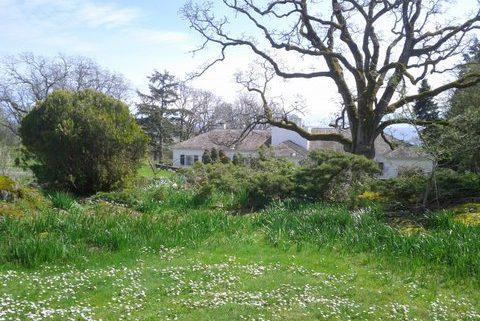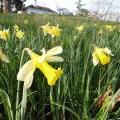Weekend Events at the Centre
Krishnamurti Study Group Saturday, May 2, 2015 Nine people met to begin the study of chapter 5 in The First and Last Freedom by J. Krishnamurti. It was a beautiful day for enjoying the property and the spectacular view while at the same time looking into some serious questions. The chapter is entitled “Action and Idea” and it starts off looking into the relationship between action, the “actor”, and the anticipated result of the action. K says that action with an end in view creates the “actor”, which is the source of conflict in action. The reading led to an interesting exploration of these ideas and the possibility suggested by K of action without idea. Inquiry Sunday Sunday, May 3, 2015 The morning session on Sunday included a video interview with Dr P Krishna, former principal of the Rajghat Krishnamurti School in India. Dr. Krishna had a long time association with K and is very familiar with his teachings. He is also an excellent speaker who can clearly present his understanding of the ideas that K was attempting to communicate. Over the course of the interview a range of topics was covered, with a particular focus on the difference between thought and awareness. Dr. Krishna emphasized that while psychological thought is strongly conditioned, awareness is not conditioned and is able to observe or look directly at the creations of thought and see whether they are true or not. This is the key to living with clarity and harmony. Also discussed was the challenge of running Krishnamurti schools with the intention of learning about ourselves and not just about the subject matter required to pass exams and get a job. Dr. Krishna will be leading a weekend retreat at the Centre in May. The Sunday afternoon session began with a video of K answering the following question during a Saanen gathering in 1980: “Is our sitting quietly every day to observe the movement of thought by your definition a practice, a method, and therefore without value?” He began by asking the questioner about the motive for this activity. Was there a seeking of some experience or achievement, some exalted state of consciousness? Without seeing what one’s motive is any activity will lead to illusion. If one’s motives can be observed as part of the inquiry then sitting, standing or walking quietly is significant and necessary. Then the mind may come upon a silence and depth without being forced or manipulated in any way. Participants then engaged in dialogue on the front lawn of the main house, including some stories of personal meetings with Krishnamurti.



